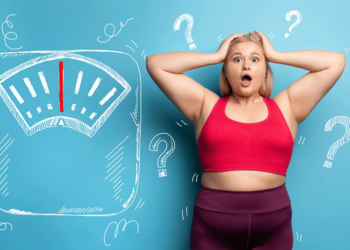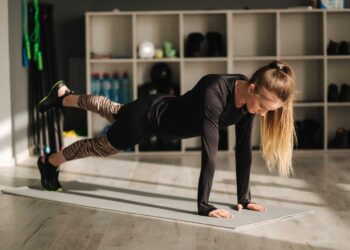Are you a fitness beginner looking to accelerate your workout results? The key might just be in the foods you eat. A healthy diet plays a crucial role in supporting your fitness journey, providing you with the necessary nutrients to fuel your workouts and aid in recovery. But what are the best foods to eat for optimal performance?
In this ultimate guide, we will delve into the world of nutrition to help you make informed food choices that will boost your workout. From healthy diet tips to recommended food choices, we will explore the best and worst foods for fitness beginners. Get ready to transform your eating habits and take your fitness to the next level!
Key Takeaways:
- Understanding the importance of a healthy diet is crucial for fitness beginners.
- Making informed food choices can significantly impact your workout performance.
- There are specific foods that can help maximize your results.
- Optimal nutrition is the key to achieving your fitness goals.
- Discover the best and worst foods for fitness beginners.
What Protein to Eat When Working Out?
Protein is a crucial component of a workout diet as it plays a vital role in muscle growth and repair. When you engage in physical activity, especially intense workouts, your muscles undergo stress and micro-tears. Consuming an adequate amount of protein is essential to aid in the repair of these muscle fibers, leading to stronger and more resilient muscles.
To support your fitness goals effectively, it is important to choose the right protein sources in your diet. Incorporating high protein meals into your routine can provide the necessary building blocks for muscle development and recovery. Consider including protein-rich foods such as lean meats, poultry, fish, eggs, dairy products, legumes, and plant-based sources like tofu and tempeh.
When determining the recommended amount of protein to consume, it is crucial to consider factors such as your body weight, activity level, and fitness goals. As a general guideline, most individuals engaged in regular workouts can benefit from consuming approximately 0.7 to 1 gram of protein per pound of body weight per day. However, professional athletes or those with specific training regimens may require higher protein intake.
Remember: The key is to incorporate protein as a regular part of your meals and snacks throughout the day rather than consuming large amounts in one sitting.
By providing your body with adequate protein, you can optimize the recovery process, reduce muscle soreness, and promote muscle growth. Additionally, protein-rich meals can help you feel satiated and maintain a healthy weight.
The Benefits of High Protein Meals for Workouts
Including high protein meals in your workout diet offers numerous benefits that can enhance your fitness performance:
- Maximized Muscle Development: Protein is essential for the synthesis of new muscle fibers and the repair of existing tissue. Consuming sufficient protein can promote muscle growth and help you achieve your desired physique.
- Improved Workout Recovery: Protein plays a crucial role in the recovery process, repairing damaged muscle tissue and reducing exercise-induced muscle soreness. It accelerates the healing process, allowing you to bounce back faster and train consistently.
- Enhanced Exercise Performance: Protein can support your workout performance by providing a readily available source of amino acids. These amino acids are the building blocks of muscle tissue and can help improve strength, endurance, and overall athletic performance.
- Preserved Lean Body Mass: During periods of intense physical activity or calorie restriction, consuming adequate protein can help prevent the breakdown of lean body mass. This preservation of muscle tissue is crucial for maintaining strength and a healthy metabolism.
To help you plan your meals, here is an example of a high protein meal plan:
| Meal | Protein Source |
|---|---|
| Breakfast | Scrambled eggs with spinach and feta cheese |
| Snack | Greek yogurt with mixed berries and almonds |
| Lunch | Grilled chicken breast with quinoa and roasted vegetables |
| Snack | Protein shake with whey or plant-based protein powder |
| Dinner | Salmon fillet with sweet potato and steamed broccoli |
| Snack | Cottage cheese with sliced peaches |
By strategically incorporating high protein meals into your workout diet, you can provide your body with the essential nutrients it needs to maximize your fitness results. Remember to consult with a registered dietitian or nutritionist to personalize your protein intake based on your individual needs and goals.
What Carbohydrates to Eat When Working Out?
In a workout diet, carbohydrates play a crucial role as a primary source of energy. However, there are often misconceptions surrounding carbs and their impact on workouts. Let’s clarify these misconceptions and provide recommendations for including the right types and amounts of carbohydrates in your diet to fuel your workouts efficiently.
Carbs and Workouts: Are Carbs Good? Bad? Or Just Misunderstood?
Carbohydrates have been unfairly demonized in the fitness world, with some labeling them as “bad” or even unnecessary. However, this couldn’t be further from the truth. Carbs are essential for providing the energy your body needs during exercise.
“Carbohydrates are the primary fuel source for the body, especially during high-intensity workouts,” says Dr. Sarah Thompson, a renowned sports nutritionist. “They supply your muscles with glycogen, which is crucial for optimal performance and endurance.”
Carbs come in two forms: simple carbs and complex carbs. Simple carbs, found in foods like fruits and refined sugar, provide quick energy but can cause a sudden spike in blood sugar levels. On the other hand, complex carbs, found in whole grains, legumes, and vegetables, offer sustained energy release and a steady blood sugar level.
When planning your workout diet, it’s important to include a mix of both simple and complex carbs. Simple carbs can be consumed before or during a workout for an immediate energy boost, while complex carbs should be the foundation of your meals to provide lasting energy throughout the day.
Recommended Carbohydrate Choices for Optimal Workout Fuel
To optimize your performance during workouts, consider incorporating the following carbohydrate-rich foods into your diet:
- Whole grains: Brown rice, quinoa, oatmeal
- Legumes: Black beans, lentils, chickpeas
- Fruits: Berries, bananas, oranges
- Vegetables: Sweet potatoes, broccoli, spinach
These foods are not only rich in carbohydrates but also provide essential vitamins, minerals, and fiber that support overall health. By including a variety of carb sources in your diet, you can ensure a balanced and nutritious approach to fueling your workouts.
The Role of Timing and Portion Control
When it comes to carbs and workouts, timing and portion control are key. Consuming a balanced mix of carbs, proteins, and fats before and after your workout can help optimize energy levels and enhance recovery.
Before a workout, aim to consume a meal or snack containing both simple and complex carbs about 1 to 2 hours beforehand. This will provide your body with the fuel it needs without causing digestive discomfort during exercise.
After a workout, prioritize refueling with a combination of carbs and protein to replenish energy stores and support muscle recovery. A post-workout meal or snack should ideally be consumed within 60 minutes of finishing your workout.
What Fats to Eat When Working Out?
Fats play a crucial role in a well-rounded workout diet. While they may have been misunderstood in the past, it’s important to recognize that not all fats are bad for you. In fact, incorporating the right kinds of fats into your meals can provide numerous benefits for your workouts.
So, what are the types of fats you should be including in your diet?
- Monounsaturated Fats: These are healthy fats found in avocados, olive oil, and nuts. They promote heart health and help reduce inflammation, making them an excellent addition to your workout diet.
- Polyunsaturated Fats: This type of fat includes omega-3 and omega-6 fatty acids, which are essential for brain function and play a significant role in reducing muscle inflammation. Sources of polyunsaturated fats include fatty fish, flaxseeds, and walnuts.
- Saturated Fats: While saturated fats have had a bad reputation in the past, recent studies have shown that they may not be as harmful as previously thought. It’s still important to consume them in moderation, opting for healthier sources such as grass-fed meats, coconut oil, and dark chocolate.
Why should you incorporate these fats into your workout diet?
Healthy fats provide a concentrated source of energy, which is essential for fueling your workouts. They also aid in the absorption of fat-soluble vitamins and help maintain hormone balance – both of which are crucial for optimal workout performance and overall health.
When planning your meals, remember to include a variety of healthy fats from different sources. This will ensure that you receive all the necessary nutrients to support your workouts and achieve your fitness goals.
Tips for incorporating healthy fats into your meals:
- Add avocado slices to your salads or sandwiches for a creamy and nutritious boost.
- Drizzle olive oil over cooked vegetables or use it as a salad dressing.
- Snack on a handful of nuts or seeds between meals for a satisfying and healthy snack.
- Include fatty fish like salmon or trout in your weekly meal plan to increase your intake of omega-3 fatty acids.
Remember, fats are an essential part of a balanced diet and should not be avoided. By incorporating the right types of fats into your meals, you can support your workouts, enhance your overall health, and achieve your fitness goals.
| Fat Type | Food Sources |
|---|---|
| Monounsaturated Fats | Avocados, olive oil, nuts |
| Polyunsaturated Fats | Fatty fish, flaxseeds, walnuts |
| Saturated Fats | Grass-fed meats, coconut oil, dark chocolate |
Supplements and Diet Structure for Workouts
When it comes to maximizing your workout performance, supplements can play a crucial role. They can provide an extra boost of energy, aid in muscle recovery, and support overall fitness goals. However, it’s important to understand that supplements should complement a well-structured diet rather than replace it.
Before incorporating any supplements into your routine, it’s essential to have a solid foundation of proper nutrition. A well-structured diet ensures that your body receives the necessary nutrients to fuel your workouts and promote optimal health. Here are some tips on how to structure your diet for workouts:
- Balance macronutrients: Include a combination of carbohydrates, protein, and fats in your meals. Carbohydrates provide energy, protein supports muscle growth, and fats help with hormone production and nutrient absorption.
- Eat at regular intervals: Fuel your body with small, balanced meals throughout the day rather than relying on large, infrequent meals. This helps maintain steady energy levels and avoids feeling sluggish during workouts.
- Hydrate adequately: Proper hydration is essential for optimal workout performance. Drink water before, during, and after your workouts to stay hydrated and support your body’s functions.
Now, let’s explore some popular supplements that can enhance your workout:
| Supplement | Benefits |
|---|---|
| Protein powder | Provides a convenient source of high-quality protein for muscle recovery and growth. |
| Creatine | Enhances strength, power, and muscle endurance during high-intensity workouts. |
| BCAAs | Aids in muscle recovery, reduces muscle soreness, and supports muscle protein synthesis. |
| Pre-workout supplements | Boosts energy, focus, and endurance, allowing for more intense workouts. |
Remember, supplements should be used in conjunction with a well-structured diet and not as a substitute for nutritious food. It’s always recommended to consult with a healthcare professional or registered dietitian before incorporating any supplements into your routine.
By understanding the role of supplements and following a well-structured diet, you can optimize your workout performance and make significant progress towards your fitness goals.
Conclusion
In conclusion, this ultimate guide emphasizes the importance of making informed food choices for fitness beginners. By following healthy diet tips and incorporating the best foods into their meals, beginners can optimize their workouts and achieve their fitness goals. Understanding the nutrition recommendations and practicing balanced eating habits are essential for overall well-being and performance.
It is crucial for beginners to be aware of the recommended food choices and the dietary do’s and don’ts. By selecting the right foods to eat and avoiding the worst foods, beginners can fuel their bodies with optimal nutrition. This, in turn, will support their workout routines and enhance their results.
Remember, food selection guidelines play a significant role in your fitness journey. By prioritizing a nutritious and well-balanced diet, you can give your body the fuel it needs to perform at its best. Make sure to make dietary choices that provide the necessary nutrients and promote a healthy lifestyle. With these nutrition tips and advice, you’ll be on your way to achieving your fitness goals and maintaining an overall healthy lifestyle.











